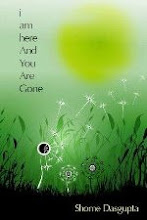Indian Blues: American Indians And The Politics Of Music, 1879-1934
University Of Oklahoma Press
http://www.oupress.com/bookdetail.asp?isbn=978-0-8061-4019-3

I remember doing some kind of play in grade school having to do with American Indians and Colonialists--I was one of the American Indians, wearing some kind of brown felt material around my body, and a headband. The parents were crying, of course, seeing their children on stage--I had no clue what it was all really about; I was just happy that there were cupcakes after the performance. That was my first introduction to American Indians, and that was all I knew for a while. 1492 Columbus sailed the ocean blue and happily ever after.
It wasn't until some 10 years later, when I opened up Howard Zinn's A People's History Of United States, did I gain a better understanding of the history of American Indians. It wasn't until some 10 years later when I realized that what I knew about American Indian History was based on a 15 minute performance done in grade school. Zinn's book opened up a new world to me--a world where American Indians lost their land or were killed or enslaved, or forced to convert their beliefs. It was a history I had never known--it was a hidden history which schools tend to not teach. What drew to me to Zinn's book was his uncovering of all these kinds of histories that we never learn about, including the history of American Indians. In John Troutman's Indian Blues, the author plunges into the struggles of American Indians from the 1870s to the 1930s, and like Zinn, he uncovers a hidden history hidden within a hidden history--it's like finding an underground cave within an underground world.
Like Zinn, Troutman made me think about a history in a way I had never thought about before. I had known about the struggles of the American Indians; however, it was only a general view. Troutman goes into the specifics--he goes deeper into this realm, and one can immediately notice the passion behind these pages. This passion is blended with reason and research and this helps to fortify the truths behind this subject. Singing and dancing--it seems so simple; however, it becomes quite complicated when two cultures collide or when fear meets creativity.
Music, for me and my friends, for people I don't know, for people I do know, play a huge role in our lives. It makes us dance or sing or ponder; it makes us laugh or cry; we'll have it playing in the background, or we'll have it playing in the foreground trying to forget everything in the background. Music can play both an active or passive role, and Troutman specifically discusses its active role, as it helped American Indians to maintain its identity despite facing policies that were trying to regulate American Indian music and dance. This text reminds us about the importance of music through history and it reminds us about the importance of history through music--it reignites the hidden past and continues to push for the future--providing hope.
Indian Blues is for both admirers of history and music enthusiasts. It's scholarly in nature, but it should also be read by anyone who is willing to read--it's for anyone who is in search of knowledge. The prose isn't complicated--it's understandable and precise and clear, but it also asks you to take time with each sentence, because of the inherent significance that travels with each phrase.
The book tells a sad and true story of American Indians as they have struggled and fought to maintain their heritage, specifically, their culture of music. Indian Blues is quite a fitting title as the book connects American Indian music and its role in American domestic policy between the 1870s and 1930s. Blues--that style of music, representing the blues of a culture trying to keep its identity. Troutman's book embodies both the soul of music and American Indian History, showing the importance of both fields as Indian Blues pursues liberation and truth and inspiration.
About John W. Troutman:
http://www.history.louisiana.edu/Troutman%20page.htm
Soundtrack:
http://www.warparty.ca/














Indian Blues is now on my reading list. Thanks for bringing it to my attention!
ReplyDeleteTabby
Awesome--thanks, Tabby. It's definitely worth reading.
ReplyDelete[I still look for you (all) driving around town.]